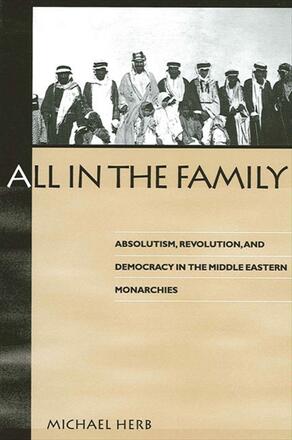
All in the Family
Absolutism, Revolution, and Democracy in Middle Eastern Monarchies
Alternative formats available from:
A new and provocative argument about monarchism in the Middle East.
Description
Michael Herb proposes a new paradigm for understanding politics in Saudi Arabia and the Gulf. He critiques the theory of the rentier state and argues that we must put political institutions—and specifically monarchism—at the center of any explanation of Gulf politics. All in the Family provides a compelling and fresh analysis of the importance of monarchism in the region, and points out the crucial role of the ruling families in creating monarchal regimes. It addresses the issue of democratization in the Middle Eastern monarchies, arguing that the prospects for the gradual emergence of constitutional monarchy are better than is often thought.
Michael Herb is Assistant Professor in the Political Science department at Georgia State University.
Reviews
"One of the most insightful and important contributions of the book lies in its well-articulated critique of the (simplistic) 'rentier state' theory, which attributes the resilience of Gulf regimes to their oil wealth and consequent ability to buy off the opposition. Such a critique is long overdue. The author's arguments and evidence to challenge the rentier theory should by themselves ensure that this book will receive much attention. "— Guilain Denoeux, Colby College
"…provocative and insightful …" — Middle East Policy
"…a well-written, concise analysis of Middle Eastern monarchies … deserves serious attention from scholars and policy makers interested in the Middle East or the stability of authoritarian states more generally. " — Political Science Quarterly